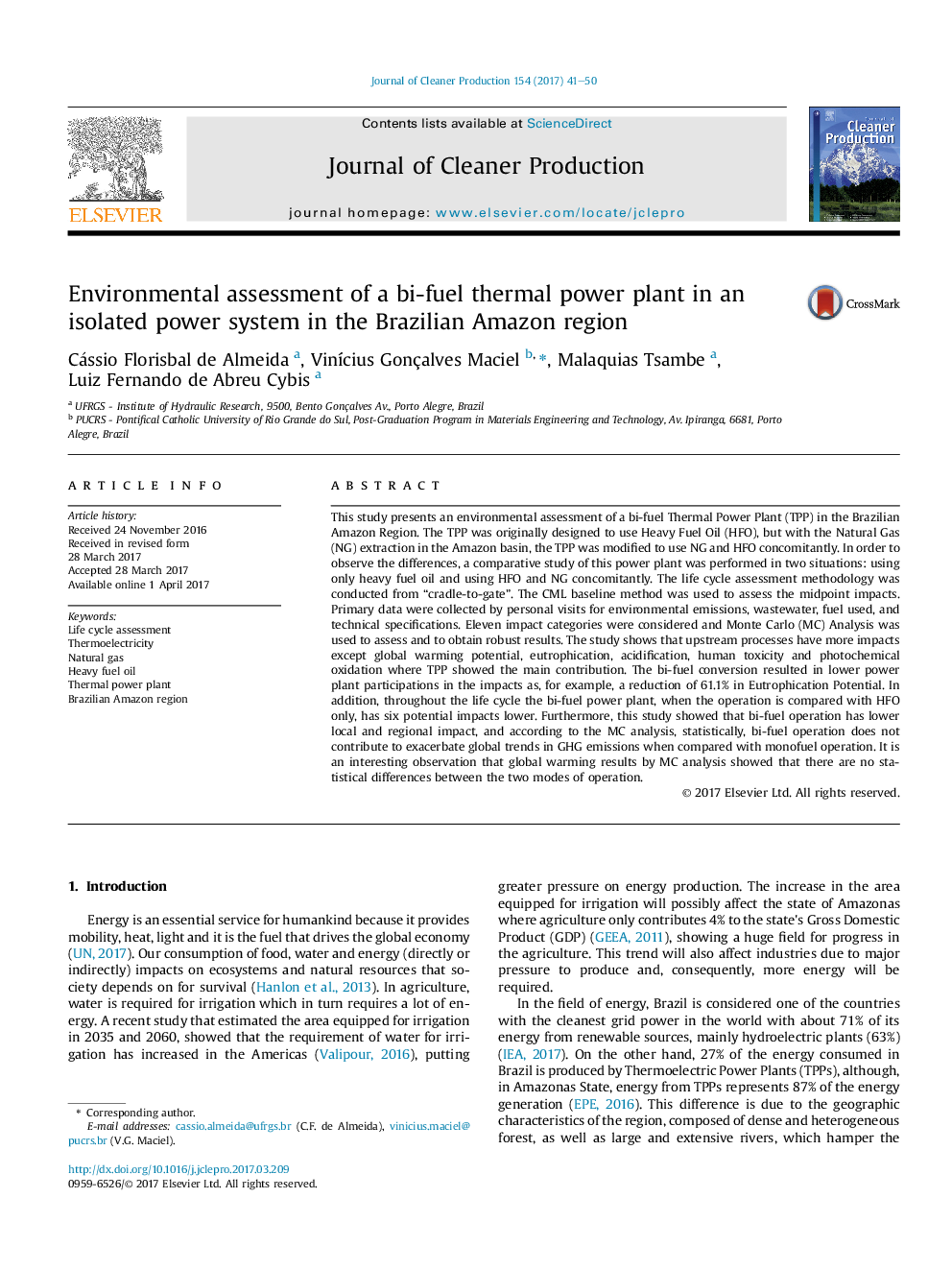ترجمه فارسی عنوان مقاله
ارزیابی محیط زیست نیروگاه حرارتی دو سوخت در یک سیستم قدرت جداگانه در منطقه آمازون برزیل
عنوان انگلیسی
Environmental assessment of a bi-fuel thermal power plant in an isolated power system in the Brazilian Amazon region
| کد مقاله | سال انتشار | تعداد صفحات مقاله انگلیسی |
|---|---|---|
| 142045 | 2017 | 10 صفحه PDF |
منبع

Publisher : Elsevier - Science Direct (الزویر - ساینس دایرکت)
Journal : Journal of Cleaner Production, Volume 154, 15 June 2017, Pages 41-50
ترجمه کلمات کلیدی
ارزیابی چرخه حیات، ترموالکترونیک، گاز طبیعی، سوخت نفت سنگین، نیروگاه حرارتی، منطقه آمازون برزیل،
کلمات کلیدی انگلیسی
Life cycle assessment; Thermoelectricity; Natural gas; Heavy fuel oil; Thermal power plant; Brazilian Amazon region;

